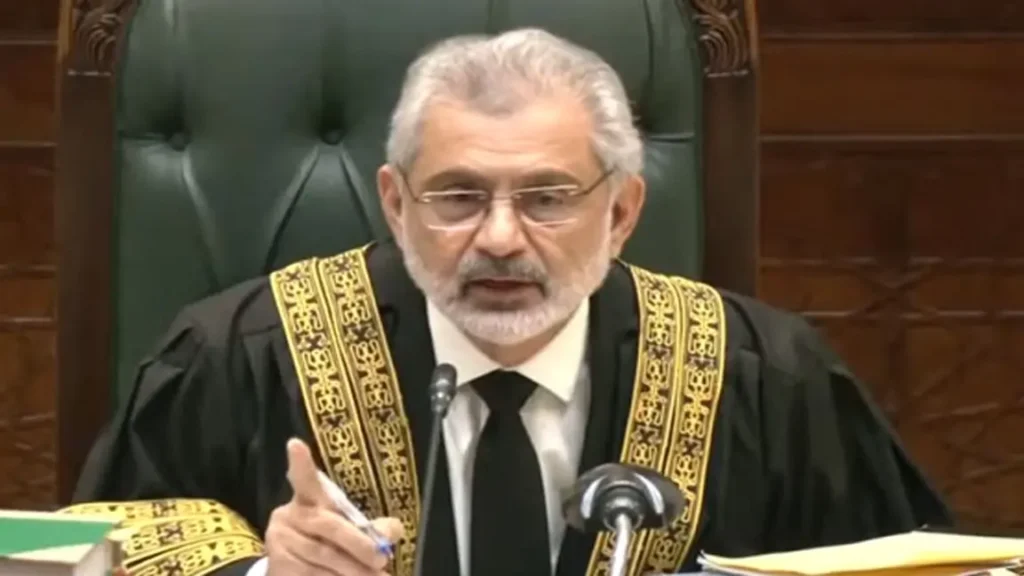ISLAMABAD: On Tuesday, Chief Justice of Pakistan (CJP) Justice Qazi Faez Isa raised a profound question, pondering whether the Zulfiqar Ali Bhutto murder case presented an opportunity for institutions to dispel accusations against themselves and rectify historical records.
The matter was taken up by a nine-member bench of the Supreme Court, led by CJP Justice Qazi Faez Isa, to address the presidential reference submitted by Asif Ali Zardari under Article 186 of the Constitution. This reference seeks a reevaluation of the trial concerning the assassination of Zulfiqar Ali Bhutto, the founding leader of the Pakistan People’s Party (PPP).
The bench, comprising Justice Sardar Tariq Masood, Justice Mansoor Ali Shah, Justice Yahya Afridi, Justice Aminuddin, Justice Jamal Khan Mandokhel, Justice Muhammad Ali Mazhar, Justice Syed Hasan Azhar Rizvi, and Justice Musarrat Hilali, convened for this significant legal discourse.

During the proceedings, Chief Justice Qazi Faez Isa expressed the view that martial law is not imposed by the army as an institution but often by individuals acting independently. He questioned whether the case presented an opportunity for institutions to distance themselves from accusations by attributing wrongdoing to specific individuals.
The Chief Justice highlighted the importance of a fresh beginning and voiced concerns about living in the past, emphasizing that history is not always favorable. He also remarked that a court established under martial law cannot be considered a general court, sparking a discussion on the legitimacy of decisions made during martial law.
The arguments delved into the issue of biasness, with Makhdoom Ali Khan, the judicial assistant, asserting the difficulty of proving bias. Chief Justice Isa questioned whether the case was about prejudice or the confession of a former judge, emphasizing the importance of distinguishing between bias and wrongdoing.
As the proceedings unfolded, various perspectives were presented, with discussions on the practical implications of the judge’s opinions and the question of public trust in the judiciary. The hearing concluded with the Supreme Court adjourning the case until February 26, with Chairman PPP Bilawal Bhutto Zardari and other prominent figures present during the proceedings. The ongoing case underscores the intricate balance between legal considerations, historical reevaluation, and public trust in the judicial system.


